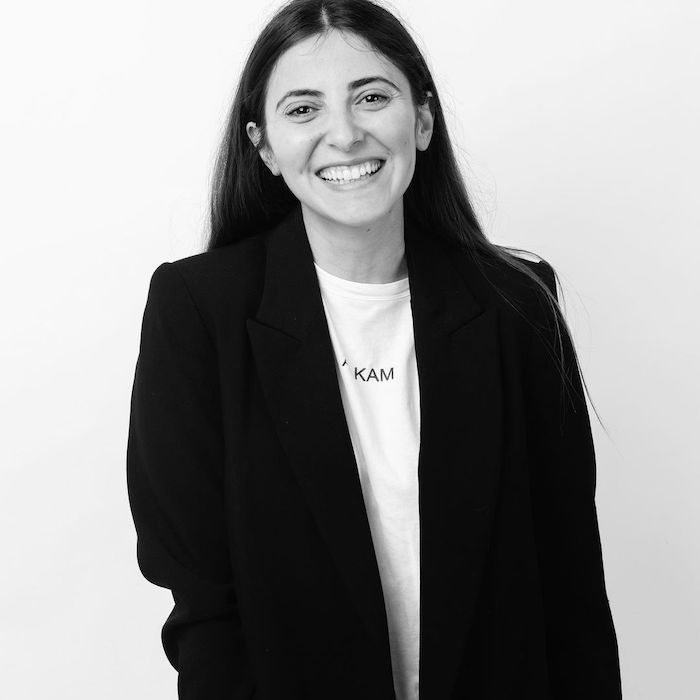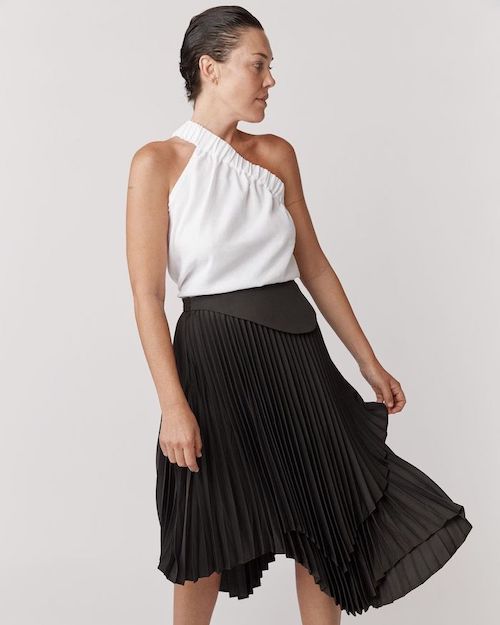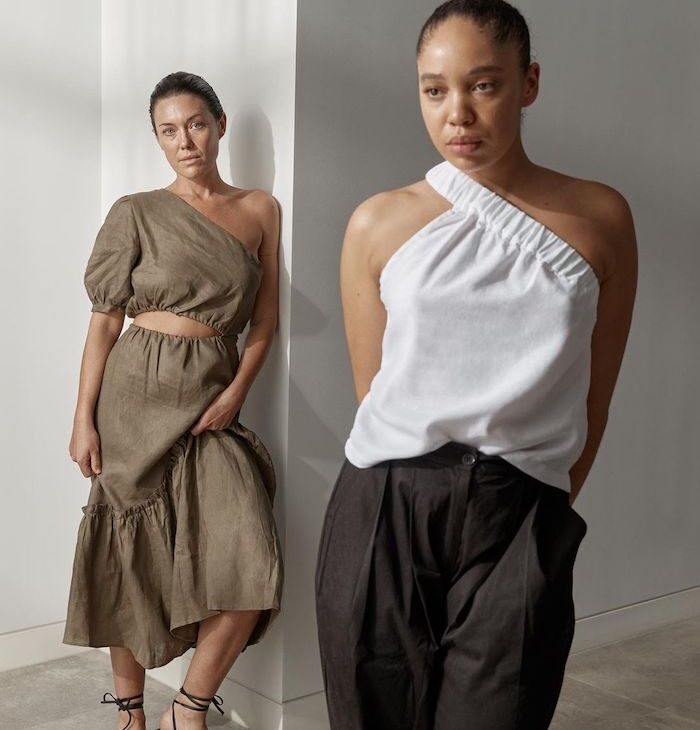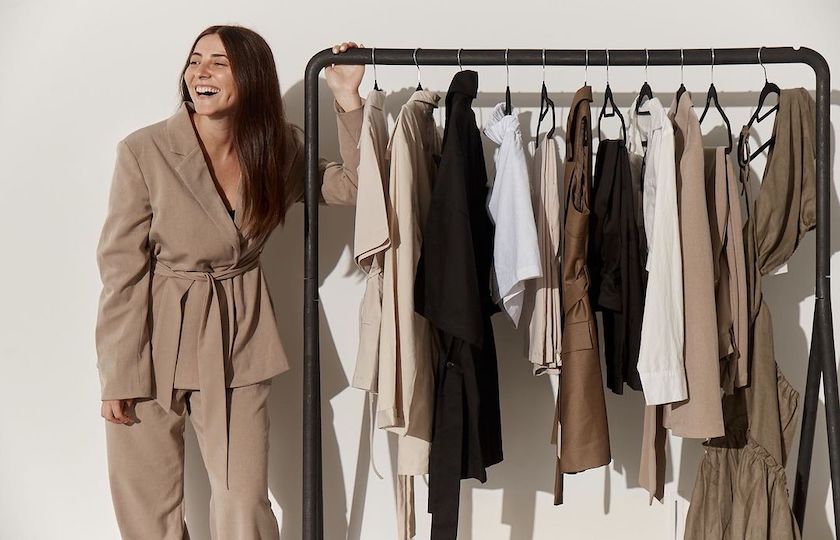In the midst of a pandemic, Australian office worker Jade Massaad found herself facing a quandary. On one hand, she was disturbed by the devastating environmental and social impact of the fashion industry. On the other, she was unable to find affordable, good-quality, and timeless garments that seamlessly fitted into her lifestyle.
Realising her challenge was not unique, Massaad founded the sustainable lifestyle fashion brand Alkam in 2020, setting out to create a conscious wardrobe that met women’s expectations of stylish design and comfort in equal measure, transforming sustainably created raw materials into something special.
Massaad tells Viable.Earth that her brand was born to fuel a fashion movement with a positive imprint on the planet.

For years, she had been growing increasingly concerned about the wastefulness fuelled by the fast-fashion industry and the impact on landfills from clothing designed for short life cycles.
“Our mission is to drive a movement of conscious consumption – everything we create is designed to last, so you can buy less, and throw away less,” she said.
“To me, fashion should be a combination of considered design, responsible business and conscious manufacturing.”
Like many other Australians, Massaad was severely affected by the Covid-19 pandemic which impacted many areas of the economy and daily life. People began to stay at home more, and working remotely from home became a trend. Initially this stunted demand for her more stylish pieces that were geared to wearing out rather than slouching on a sofa. But like most of us she recognised that life would eventually evolve into something like pre-Covid times, so she took the plunge and started creating designs in her living room while much of the world was in some form of lockdown.
“Being stood down from my full-time job during the pandemic was the extra push I needed to finally start my dream business,” Massaad explains.
“The economy was tough, and the nature of my product wasn’t a necessity when people were spending all their time at home. They simply weren’t needing to buy a suit or a dress, it was all about loungewear and activewear. Once lockdowns were over in Sydney, we saw a big influx of consumers shopping, a term I used to coin ‘revenge shopping’. This was when the business started to grow.”
Sustainable solutions can be economical
For a fashion business, keeping up with trends is a necessity. Fashion can by nature be trendy and flashy, so it may seem almost contradictory for a brand like Alkam to pursue the goal of ‘lasting long and wasting less’. Massaad recognised her designs had to be timeless, not transitory.
But Massaad believes fast and trendy fashion is a major driver of environmental pollution. Sustainable fashion brands, such as Alkam, can demonstrate to the fashion industry how to reduce waste, by using appropriate designs and materials designed for longevity – or recycling once garments cannot be worn anymore.

“Fast fashion, and trendy fashion, are bad for the planet. Did you know that 75 per cent of the fashion supply chain ends up in landfills? This is the equivalent of one garbage truck per second.
“I always wanted to start a fashion label, but without contributing to this horrible issue. Alkam was born out of my burning need for a life-long, conscious wardrobe that answered to the devastating environmental and social impact of the fashion industry.”
Price is another potential barrier to discouraging consumers from choosing sustainable fashion. But Massaad believes price, sustainability and fashionability credentials can all be combined into a product. This approach has already helped her gain loyal customers and at the same time spread the message of sustainable fashion within the community.

“Many sustainable brands don’t have an accessible price point as Alkam does. Consumers want to shop their values, but like me, can’t justify spending $500 on a blazer,” she said.
“I believe price, sustainability and fashion can co-exist harmoniously, and this is why most of my customers are returning customers.”
Alkam, planet and people
Massaad says ecological sustainability and the ‘less is more’ philosophy are criteria that run throughout the whole design and manufacturing process. Alkam is committed to reducing water volume, carbon emissions and energy use across its entire supply chain and business.
“We have developed Alkam Conscious, a framework for our goals that allows us to better measure our progress within the key areas of focus,” she explained.
“One of our goals is for at least 50 per cent of our garments to be made from organic, sustainable or recycled materials, and at least 50 per cent of cotton garments to be made from recycled or organic-certified cotton. We are on a mission to achieve these goals by 2025, and look forward to rolling this out in Collection III, launching next year.”

Alkam is also committed to protecting and ensuring women’s labour sources. Nine in 10 of Alkam’s team are women, including its suppliers. The company produces its pieces in a factory in China and guarantees every woman that works on its clothing receives fair treatment and pay that is reflective of her value.
“Our factory is a signatory of our Supplier Code of Conduct, written in line with international standards including the Universal Declaration of Human Rights and International Labour Organisation’s (ILO) core conventions,” she said.
“Before taking on any suppliers or partners, our onboarding process requires the commitment of signing our Supplier Code of Conduct and a discussion to understand their values and how they function. We limit the number of suppliers we use in order to build and strengthen existing relationships.”
The fashion label is also a partner in The Hunger Project, contributing 100 per cent of profits from the sale of its scrunchies to help end global poverty. Partnering with One Tree Planted, for every order received Alkam plants a tree somewhere it is needed – and the company will not use fur in any of its garments.
“Alkam exists to create fashion but good. But I do recognise that we are still learning, and growing in this space,” she said.
“While we have a great plan, we still need to do better and to be better. That is why we are continuously looking for ways we can improve our processes so we can leave a long-lasting impression on our people, as well as our planet.”



